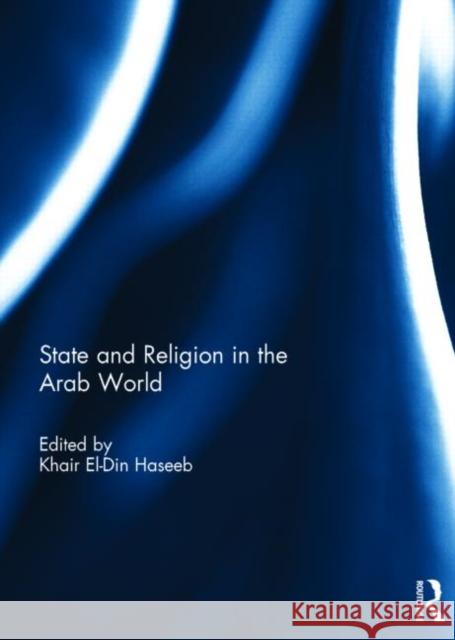State and Religion in the Arab World » książka
State and Religion in the Arab World
ISBN-13: 9780415721189 / Angielski / Twarda / 2014 / 311 str.
State and Religion in the Arab World
ISBN-13: 9780415721189 / Angielski / Twarda / 2014 / 311 str.
(netto: 443,08 VAT: 5%)
Najniższa cena z 30 dni: 453,32
ok. 22 dni roboczych.
Darmowa dostawa!
This collection focuses on the controversial relationship between religion and the state within the Arab Spring context and the evolving debates on democratic transition. In this book, democracy is not questionable; it is hailed by all those vocal on the political scene. The array of opinions presented here varies from a call for a secular state based on Islamic philosophy to a call for setting democratic institutions before working on solving this religion-state dichotomy. Meanwhile some prefer to have an ambiguous stand on which side to back up, the liberals or the Islamists, despite a detailed criticism of the ossified ways of those calling for a religious state (Al-Majd). The book starts with an analysis and a detailed account of how the sensitive issue of the relationship between state and religion developed in Arab though and society and it goes on to employ less the religious discourse in presenting their positions thus focusing on actual cases of this struggle for power in different Arab countries such as Tunisia and Egypt.The collection also provides insights and analysis of the ongoing debates and views on the role of religion in Libya and provides an analysis of the case of Morocco. In addition to this there is a special chapter that deals with how Muslim communities living in the West adapt to secular state politics. The collection ends with a thorough discussion by a number of Arab intellectuals and activists, Muslims and Christians alike, whereby core issues related to the debate on state and religion are presented. This discussion, in addition to reflecting the Islamist-secular dichotomy, demonstrates the richness of the ongoing debates that extend well beyond the discourse on this dichotomy. This book is a compilation of articles published in Contemporary Arab Affairs.











